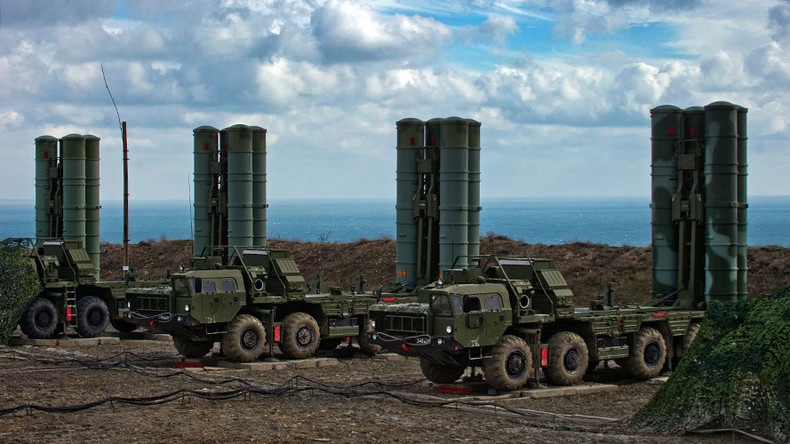Alwaght- The US warned Turkey against the purchase of Russian S-400 air defense missile systems and threatened the NATO-member country with imposing sanctions and stopping delivery of F-35 fighter jets.
Wess Mitchell, US Assistant Secretary of State for European and Eurasian Affairs, said on Tuesday that Turkey would be subject to sanctions under a bill President Donald Trump signed into law last summer, which seeks to punish companies that do business with Russia’s defense industry.
“We made it clear that if Turkey buys S-400s… there will be consequences. We will introduce sanctions within Countering America's Adversaries Through Sanctions Act (CAATSA),” Assistant Secretary of State for European and Eurasian Affairs Wess Mitchell said at a Senate Foreign Relations Committee hearing.
The S-400 system, whose full name is the Triumf Mobile Multiple Anti-Aircraft Missile System (AAMS), is an advanced Russian missile system designed to detect, track, and destroy planes, drones, or missiles as far as 402 kilometers away. It has previously been sold only to China and India.
On April 3, Turkish President Recep Tayyip Erdogan and his Russian counterpart Vladimir Putin said in Ankara that they had agreed to expedite the delivery of S-400 missile systems. The delivery is expected to start between late 2019 and early 2020.
The United States has repeatedly warned Turkey against the consequences of its decision to buy the S-400 missile batteries from Russia, saying Washington could slap Ankara with sanctions over such a purchase.
The US State Department official added on Tuesday that Washington could also hold off on delivering more Lockheed Martin F-35 Joint Strike Fighter jets to Ankara.
“We believe that we have the existing legal authorities that would allow us to withhold transfer under certain circumstances, including national security concerns,” Mitchell said.
Turkey received the first two F-35s for training purposes last week, and the next four deliveries to the country are not expected until 2019.
Ankara, which is a NATO member, has been a partner in the F-35 Joint Strike Fighter project, a consortium financing the warplanes, since 1999.
US senators have opposed F-35's delivery in the light of Ankara's plans to purchase the Russian anti-aircraft missile system.
Turkish Foreign Minister Mevlut Cavusoglu said in a visit to Washington earlier this month that Ankara would not tolerate any pressure regarding the purchase of military equipment from Russia, adding that the delivery of F-35s had not been postponed or delayed.
Erdogan also blasted Washington’s attempts to block the purchase of S-400s from Moscow.
“We say that the US is our strategic partner. As our strategic partner, the US should not say we should knock on another door,” the Turkish president said earlier this month.
Turkey is striving to boost its air defense, particularly after Washington decided in 2015 to withdraw its Patriot surface-to-air missile system from Turkey's border with Syria, a move that weakened Turkey’s air defense.
Before gravitating towards Russia, the Turkish military reportedly walked out of a $3.4 billion contract for a similar Chinese system. The withdrawal took place under purported pressure from Washington.
Ankara’s ties with its Western allies in NATO have been strained over a range of issues. Erdogan has been critical of the US for supporting Kurdish groups in Syria that he says are responsible for terror attacks inside Turkey and also slammed Washington's refusal to hand over Fethullah Gulen, whom Ankara accuses of masterminding a 2016 coup against the Turkish government.



























